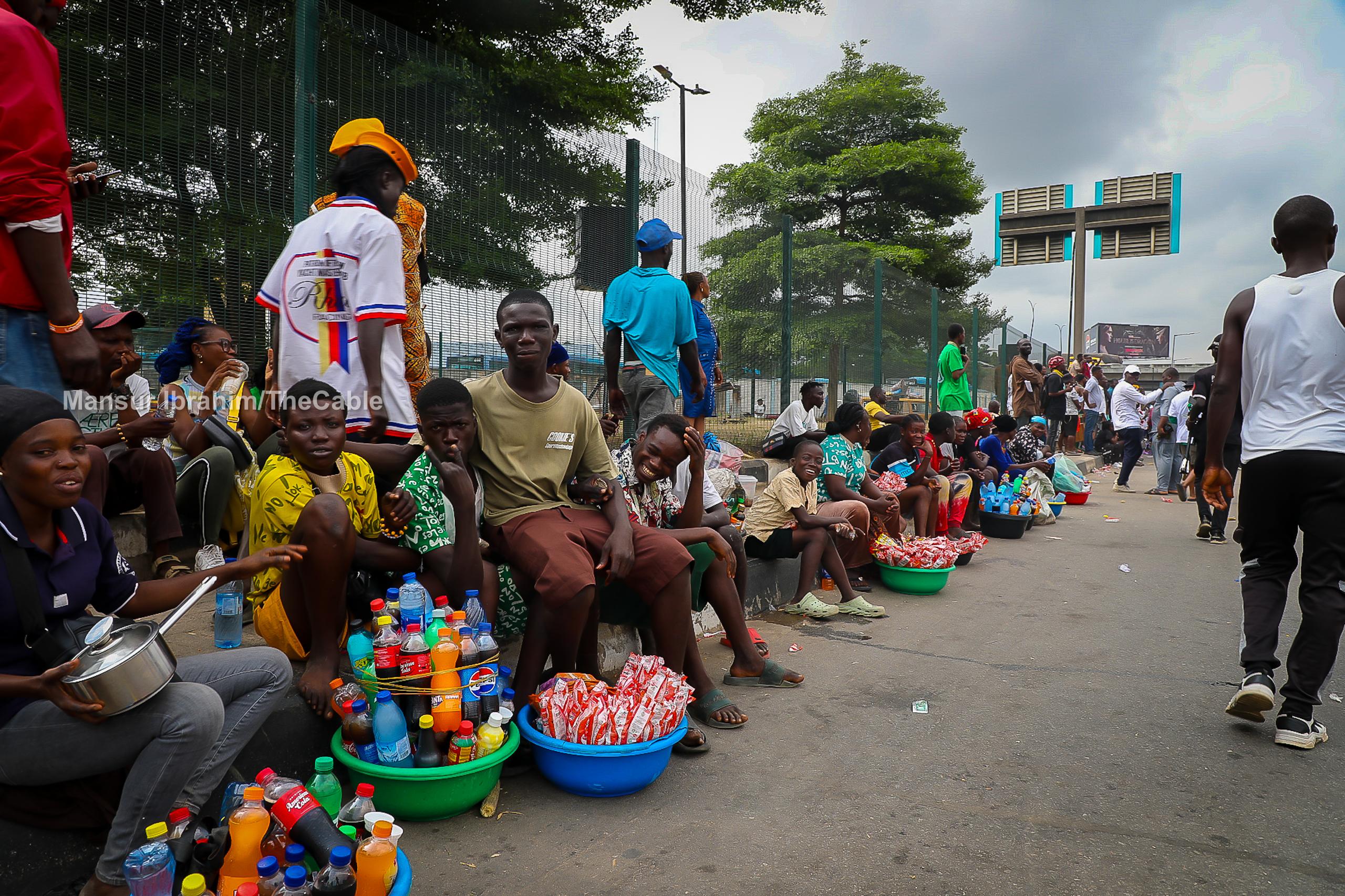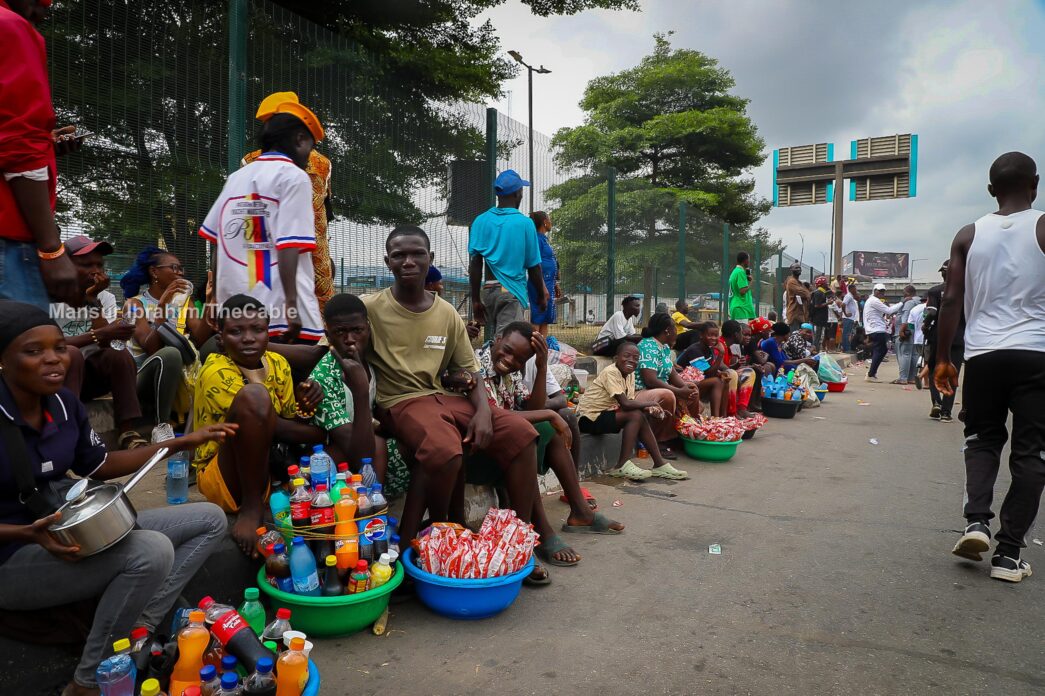BY OLUWATOBI OSENI
The “precariat,” a term blending “precarious” and “proletariat,” defines a social class marked by job and income instability. Popularised by sociologist Guy Standing, the concept captures the struggles of individuals trapped in a cycle of uncertainty, lacking stable employment, benefits, and social protection. In Nigeria, this phenomenon is particularly severe, with historical, economic, and social factors worsening the hardships faced by the precariat – the country’s vast youth population.
Nigeria’s demographics present both an opportunity and a challenge. Over 60 percent of the population is under the age of 25, representing a potential demographic advantage. However, the lack of job prospects, pensions, and insurance for this youthful demographic has created a ticking time bomb. Frustrated and disillusioned by the scarcity of stable employment, many unemployed Nigerian youth are at risk of turning to crime, fueling social unrest, and contributing to political instability. Little wonders, Merchants of Hope, not limited to sports betting companies have a lot of customers as they litter the streets of major cities with kiosks fleecing young people of scarce resources.
Already, Nigeria is facing increased crime rates with the 2024 World Cybercrime Index(WCI) stating that Nigeria is the top country for scams across the world. The actual indices are more damning, with Nigeria’s criminality score at 7.28, ranking as one of the top six countries on the Africa Organized Crime Index, .
Advertisement
The lack of employment, especially among young people, has been identified as a contributing factor. Unsurprisingly so, because Idle individuals are more susceptible to being recruited by criminal gangs, militant groups, and terrorist organisations. Without gainful employment and financial security, many young Nigerians are unable to contribute productively to the economy. This hinders economic growth and perpetuates a cycle of poverty and inequality, further fueling criminal activity.
In contrast, previous generations in Nigeria had access to social buffers such as cooperatives and community support systems that provided a semblance of financial security. These cooperatives often functioned as informal financial institutions, offering loans, savings schemes, and emergency funds. Such social networks mitigated the impacts of economic hardship and provided a safety net for members. However, the erosion of these traditional support systems, coupled with the growing population of unemployed youth, exacerbates the socio-economic challenges facing Nigeria today.
We must understand that a complex history of colonialism, post-independence struggles, and economic volatility shapes Nigeria’s socio-economic landscape. Following the country’s independence from British rule in 1960, Nigeria experienced a series of military coups and civil unrest, culminating in the Nigerian Civil War (1967-1970).
Advertisement
The discovery of oil in the Niger Delta in the 1950s promised economic prosperity, but mismanagement, corruption, and political instability hindered sustainable development. Despite being Africa’s largest oil producer, Nigeria struggles with poverty, inequality, and unemployment, creating fertile ground for the emergence of a sizable precariat class.
Fundamentally, Nigeria’s economy, though diversified in recent years, remains heavily reliant on oil exports, making it vulnerable to global oil price fluctuations. The collapse of oil prices in the mid-2010s plunged the country into a recession, exacerbating existing economic challenges. High inflation rates, a weak currency, and mounting public debt have further strained the economy.
Unemployment and underemployment rates are alarmingly high, with the National Bureau of Statistics reporting a combined rate of over 50% in 2020. The informal sector, characterised by low wages, job insecurity, and lack of benefits, absorbs a significant portion of the workforce, epitomising the precarious nature of Nigerian employment.
Worse, the education system, plagued by inadequate funding, poor infrastructure, and outdated curricula, fails to equip students with the skills needed for the modern labour market. Universities churn out graduates in fields with limited job prospects, while industries face a shortage of skilled workers in technical and vocational areas.
Advertisement
This skill mismatch contributes to high youth unemployment and underemployment, as many young Nigerians find themselves either overqualified (with over 17 percent of their advanced degree holders unemployed) for available jobs or lacking the skills demanded by employers. The disconnect between education and employment perpetuates the cycle of economic precarity for the Nigerian youth.
As youth unemployment in Nigeria hit crisis levels, with devastating social and economic consequences, the lack of meaningful employment opportunities not only stifles individual aspirations but also hampers national development and stability. This crisis is what fuels the “Japa” movement, where skilled young Nigerians migrate abroad in search of better opportunities. The exodus of skilled talent further undermines the country’s development, aggravating challenges in critical sectors like healthcare and education, and weakening efforts to foster innovation and economic growth.
Despite these challenges, the rise of the ‘gig’ economy in Nigeria provides a way out but also presents its challenges. Platforms like Uber, Bolt, and freelance marketplaces offer income-earning opportunities for those excluded from formal employment. However, these gigs often come with their set of precarious conditions: low pay, lack of benefits, job insecurity, and exploitation. Gig workers face constant uncertainty, as their income depends on fluctuating demand and platform algorithms. While the gig economy offers a lifeline for many, it also underscores the broader issue of precarious work in Nigeria. Clearly, there is an urgent need for comprehensive policy interventions to address youth unemployment and restore confidence in Nigeria’s future.
Various Nigerian governments have introduced policies and interventions aimed at addressing economic precarity but with limited success. Initiatives such as the National Economic Empowerment and Development Strategy (NEEDS) and the Economic Recovery and Growth Plan (ERGP) have sought to stimulate economic growth and create jobs. A critical analysis of these policies reveals gaps and areas for improvement, emphasising the need for comprehensive and sustained efforts to tackle precarity. Future policies and interventions must aim at addressing the problems of poor implementation, corruption, and lack of continuity to ensure effectiveness.
Advertisement
Also, we need to strengthen civil society and foster collaboration between various stakeholders. Civil society organisations and grassroots movements already play a vital role in supporting the Nigerian precariat. NGOs, community groups, and labour unions are at the forefront of advocating for workers’ rights, providing essential digital skills training, and raising awareness about the issues faced by the precariat.
The success stories that have emerged as a result, especially with community-driven initiatives, demonstrate the potential for positive change. In maximising these movements to create lasting solutions to precarity, addressing the problems of limited resources and government bureaucracy is needed.
Advertisement
One of the loopholes that allow precarity to thrive is the lack of effective labour unions. Currently, labour rights in Nigeria are weakly enforced, leaving workers vulnerable to exploitation and abuse. Many employers in both formal and informal sectors flout labour laws, denying workers fair wages, safe working conditions, and the right to organise.
This absence of robust labour protections entrenches insecurity and powerlessness among workers, painting a grim picture of the plight of the Nigerian precariat. A stronger and more active labour unions would improve the quality of employment offers available to young Nigerians seeking work in the formal sector. It would also minimise incidences of wage theft, hazardous working conditions, and arbitrary dismissals.
Advertisement
The Nigerian government has previously explored social safety nets and welfare programs to address the needs of the precariat. Programs such as the National Social Safety Net Project (NASSP) and conditional cash transfers were quite notable but only reached a fraction of the target population. If these programs are to be effective, the government must address the challenges of corruption, inefficiency, and lack of transparency. Strengthening social safety nets is vital for mitigating the impacts of precarity and promoting social equity.
Furthermore, addressing gender disparities is crucial for improving the conditions of the Nigerian precariat and fostering inclusive development. All policies and interventions must acknowledge that women in Nigeria face unique challenges within the precariat, stemming from deep-rooted gender inequalities. Stakeholders need to be intentional about ensuring that programs designed also aim to cater to the overrepresentation of women in low-paying, informal jobs while the effective policy implementation of gender-sensitive employment policies can help to limit other related issues like the burden of unpaid care work, and gender-based violence and harassment in the workplace.
Advertisement
By 2050, Nigeria’s population is expected to double, reaching approximately 400 million people, and marking a significant demographic shift. The youth population already accounts for about 70 percent of the country’s total population, estimated at over 200 million. This young generation holds significant potential, signaling youthful resilience and innovation that can accelerate Nigeria’s journey to sustainable development.
Hence, the plight of the Nigerian precariat is a pressing issue that demands urgent and comprehensive action. The economic and social insecurities faced by millions of Nigerians hinder individual aspirations and national development. Addressing precarity requires a concerted effort from all stakeholders, including the government, private sector, civil society, and the international community. By implementing effective policies, strengthening social protections, and fostering inclusive development, Nigeria can alleviate the woes of the precariat and build a more equitable and prosperous society. The time to act is now.
Oluwatobi Oseni can be contacted via [email protected]
Views expressed by contributors are strictly personal and not of TheCable.











